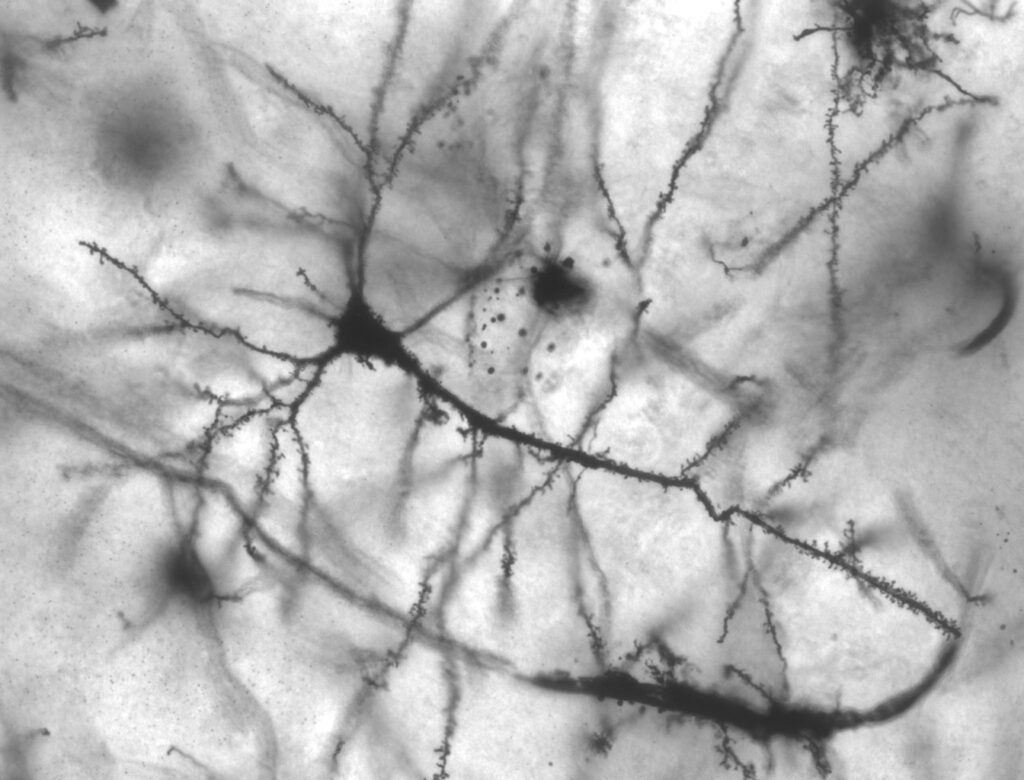Neurogenic Disorders
Neurogenic and motor speech disorders cover a wide variety of disorders that impact one’s speech and language. The most common are:
- CVA/”stroke”: aphasia, apraxia, dysarthria, difficulty “thinking”, cognitive impairment, agraphia, agnosia.
- Head injury
- Alzheimer’s and dementia
- Frontal lobe disorders
- Aging
- Progressive disorders: ALS (Amyotrophic Lateral Sclerosis), PSP (progressive supranuclear palsy)
FAQ's
WHAT ARE SYMPTOMS TO LOOK FOR?
Patients with aphasia may have a variety of symptoms depending on the location of the injury within the language centers of the brain. A patient may have difficulty expressing themselves through speaking and/or writing, yet they may appear to understand all that is happening around them. They may experience apparent muscle weakness or muscle incoordination, which makes their speech and written language unintelligible. This can be highly frustrating for the aphasic and the person with whom he/she seeks to communicate. Another symptom may be difficulty understanding spoken and/or written language. The person with aphasia may be able to speak fluently, yet cannot comprehend what is said to them or what they read. The difficulties with communication may also appear in inappropriate use of words (the person speaks fluently but their words do not make sense), word-finding difficulties, repetition of the same word/words without meaning, omitting words during the speech, and misinterpreting absurdities/idioms/humor. Symptoms, as well as severity, are highly variable in patients with aphasia, therefore therapy and communication strategies should be highly individualized.
WHAT IS THE ROLE OF THE SPEECH LANGUAGE PATHOLOGIST (SLP)?
The speech-language pathologist (SLP) will assess each area of communication that the individual was able to use prior to the injury and will determine the strengths and weaknesses of his/her communication. For example, the SLP should evaluate his/her ability to speak, write, read, and listen, determine where the communication breaks down and help provide repair strategies through therapy. If the patient is able to read well but has a difficult time speaking intelligibly, the clinician can use the strength of reading to help the patient and family develop strategies for repairing communication breakdowns within the home. During speech and language therapy, the SLP may perform drills and exercises with the patient to strengthen specific language skills affected by the brain injury, teach ways to use strengths in communication to compensate for weaker language skills, teach vocational and daily functional activities to move the person back towards independence as needed, and teach the spouse/family to help patient use communication strategies learned in therapy at home/care facility.
WHAT SHOULD THE SPOUSE/FAMILY DO TO HELP?
Aphasia is often highly frustrating for the person as well as the family and friends around the person. It is important for the family to recognize that this person with aphasia no longer communicates as they did before the injury. The family should learn how they can facilitate/aid communication by writing, providing choices, speaking slowly, and above all, being patient. Educate those around the person about his/her communication problems and teach them how to communicate with him/her more effectively. Recognize that this person still needs to relate his/her wants and needs and still desires to communicate.
Motor Speech Disorders
WHAT ARE SYMPTOMS TO LOOK FOR?
Symptoms that may be present with dysarthria include weak muscle movements and imprecise articulation of speech. Articulation (movement of lips, tongue, and soft palate for speech), phonation (ability to produce sounds), and respiration (breathing) may be affected.
Symptoms that may be present with apraxia include the ability to speak spontaneously at times but an inability to speak on command (when asked a question, etc.). The brain sends a message to the muscle to move to produce speech; but, due to damage, the muscle does not receive the command. Those with apraxia can often produce individual sounds but cannot sequence sounds to create words.
WHAT IS THE ROLE OF THE SPEECH LANGUAGE PATHOLOGIST?
Following a stroke or trauma to the brain, the Speech Language Pathologist (SLP) will evaluate the patient’s breath support/respiration, phonation, articulation, and voice quality to determine areas of weakness resulting from the accident. The evaluation will provide the SLP with the information needed to determine the exact type of disorder and the most appropriate therapy. He/she will usually include a combination of the following activities in therapy: work to strengthen the muscles used for speech, work directly practicing speech movement, teach compensatory or alternative means to communication, and educate and counsel the patient and family regarding the disorder and ways to facilitate/help the patient communicate. The SLP will work with the patient and family to make communication as functional as possible. Treatment for apraxia and dysarthria requires a determination of the level of severity of the disorder, which will guide the goals for therapy. For the most severe cases, the SLP will focus on the production of single, useful words; while milder cases may have the production of sentences and conversation as the end goal. The SLP will determine the most appropriate goals for each individual and family.
WHAT SHOULD THE SPOUSE/FAMILY DO TO HELP?
Dysarthria and apraxia affect much more than the person with brain injury. The spouse, family, and all those with whom he/she communicates are also affected. It is imperative that these communication partners be responsible to learn how to facilitate (help) communication with the patient according to his/her needs. Be supportive, educate others regarding the disorder, and engage the patient in communication tasks as much as possible. Attend therapy when possible and ask questions regarding anything that may be unclear. Seek counseling if needed to help you and your loved one deal with the life changes that have occurred.

Get Free Initial Consultation, Call 561-833-2090
Fees are an estimate only and may be more depending on your situation
MedSpeech, Inc., offers a variety of services for all of your speech-language pathology needs. We specialize in:
We also offer fiberoptic endoscopic evaluation of swallowing (FEES) and videostroboscopy. Call us at (561)-833-2090 or click here to fill out our contact form today!

